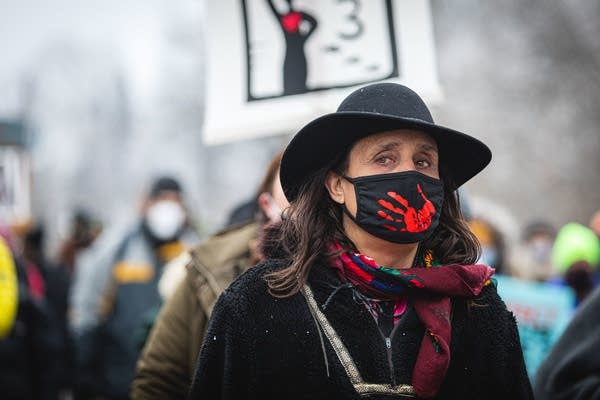Judge dismisses pipeline protest charges against 3 Native women

Activist Winona LaDuke marches on Great River Road near Palisade, Minn. Later, protesters interrupted work on the Enbridge Line 3 pipeline project south of Hill City, Minn.
Ben Hovland for MPR News | 2021
Go Deeper.
Create an account or log in to save stories.
Like this?
Thanks for liking this story! We have added it to a list of your favorite stories.


